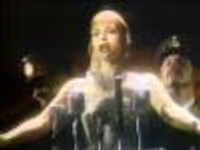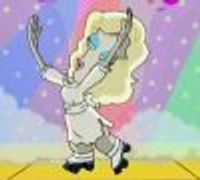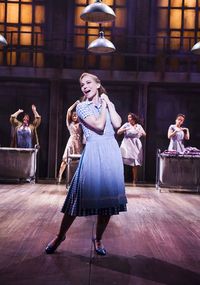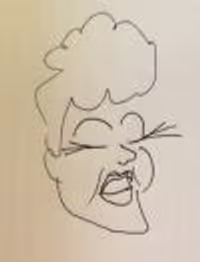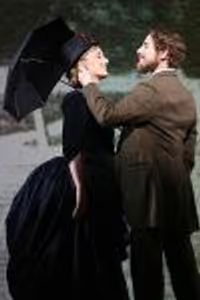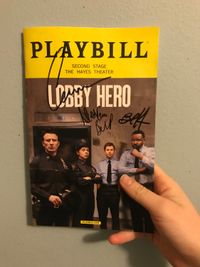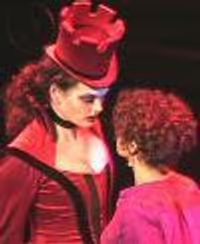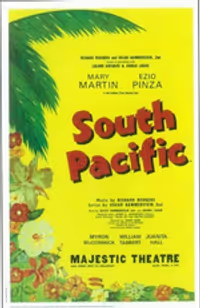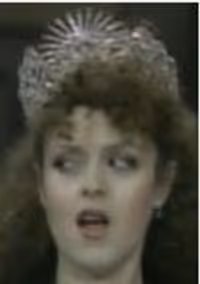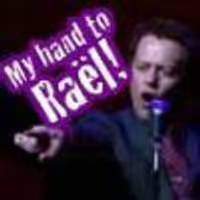Jokes, lines, or songs that dont sit right anymore
#25Jokes, lines, or songs that dont sit right anymore
Posted: 2/19/18 at 2:10am
In the 1961 musical Let it Ride, there's a song called Broads Ain't People, which advocates beating women. I swear to God. There's a line in it also about Stanley Kowalski being a hero.
In Carnival, circa 1962, in the song Sword and a Rose and a Cape, there's a line telling Marco to "perpetrate a rape"
Between those two and The Fantastiks, the early 60s were messed up.
Loopin’theloop
Leading Actor Joined: 1/9/18
#26Jokes, lines, or songs that dont sit right anymore
Posted: 2/19/18 at 4:30am
I find the subject of addressing, the uncomfortable aspects of ‘Thoroughly Modern Millie’ really fascinating.
The creators had very good intentions. They tried very hard to right some of the movies many wrongs, regarding the Asian characters (Oriental 1 & 2 yikes) and I’m really interested to know, whether the updates were seen as problematic when the show opened or if we, as a society have just moved on even further (which in essence is quite a wonderful)
I know th creators have said, they felt they didn’t want to remove the characters entirely because they could create roles for an underrepresented minority, so far so well meaning but after that it all went a bit south. Clearly, they tried very, very hard indeed to make it work and had a lot of input from the original actors and the surtitle business was intended to allow the characters as much dignity as possible...
But one of the really big issues is, the characters aren’t funny. I absolutely understand why. The creators got stuck between a rock and hard place, if you make the characters really funny, do they just up as funny Chinese laundry men? If you don’t make them funny, then you lumber these two poor guys with thankless roles that appear every now and again in the midst of a zany old fashioned musical comedy and have to play a load of earnest scenes with surtitles. Obviously, they went for the latter but ouch, does the show slow down everytime it comes to their sections.
I’m not sure what the answer is. It could’ve been done that the characters spoke absolutely perfect English and were a step ahead of Mrs. Meets, only ‘acting’ for their own ends. But there is then the problem that they become true villains, if they are knowingly complicit...which they sort of are anyway but because they aren’t speaking English we sort of forgive them?! (Another issue, how many women have these two been responsible for shipping off?!)
I saw a student production recently that tackled Mrs. Meers. It wasn’t a full production but an end of term scene study, so therefore it was just bits and pieces from different shows with faculty and some industry people invited. Mrs. Meers was not shipping off girls into white slavery, she was just poisioning then with the tea and locking them in the basement, anytime they got a recall for a leading role or landed a job. She was trying to whipe out all the young actresses in New York in revenge for her failed career. It was actually wonderful. And felt closer to the movies goofy, off centre feel (much of which was lost with the translation to stage) The girls all escaped at the end. Three girls played Mrs. Meers, in different extracts, each with a different interpretation. One had a fake German accent, one Irish and one upper class British - all spoke in an American accent, when in their true persona.
Dick Scanlan, has written extensive notes in the schools editions, possibly the other licensesd scripts too, explaining his thinking behind Mrs. Meers but that if the group, still felt it problematic, she could have any accent, so long as it was a fake one. I assume the idea with what I saw, came from this. Although, you obviously wouldn’t get away with the changes to the script, in a licensed production but it was a worthy experiment.
In the world of the above imagined full version, perhaps the Asian characters could be undercover cops, posing as laundry men. But if they are bumbling cops, which if it takes them the full length of the show to get a handle on what is happening, they obviously are, then you still have to be very careful how they are represented.
#27Jokes, lines, or songs that dont sit right anymore
Posted: 2/19/18 at 4:43amHasa diga eebowai doesn’t bother me at all (though I am agnostic). But the song that really had me crawling out of my skin in all of Book of Mormon is all those white boys singing “I Am Africa”. All five times I’ve seen it it has creeped me out.
#28Jokes, lines, or songs that dont sit right anymore
Posted: 2/19/18 at 9:39am
moira8 said: "PThespian said: "
I worked at DEH on Thurs night. There was an audible gasp/boo after the school shooter line. I worked there today and the line got a laugh."
Saw this again Friday and was hoping they removed that line. It was never funny, and drew gasps at Friday night’s performance too.
"
For the life of me, I’ll never understand how this show won best book of a musical. That line is tasteless even before the tragedy last week.
#29Jokes, lines, or songs that dont sit right anymore
Posted: 2/19/18 at 11:16am
choitoy said: "Hasa diga eebowai doesn’t bother me at all (though I am agnostic). But the song that really had me crawling out of my skin in all of Book of Mormon is all those white boys singing “I Am Africa”. All five times I’ve seen it it has creeped me out."
It's supposed to. All their mentions of stereotypical "African" things are intended to show how clueless and "in a bubble" the missionaries still are. "Like Bono, I am Africa" brings it home nicely I thought.
#30Jokes, lines, or songs that dont sit right anymore
Posted: 2/19/18 at 11:35am
Started brainstorming and came up with a big list. Several of the classic plots are of their time and can be cringey in a modern production.
Leading man stalks or bullies leading lady into loving him: Anything Goes, Crazy for You, Death Takes a Holiday, Guys and Dolls, Kiss Me Kate, The Most Happy Fella, Oklahoma, Robber Bridegroom (extra rapey), Skyscraper (sort of).
Leading lady stalks or tricks leading man into loving her: Bells Are Ringing, Bye Bye Birdie (Just let Albert go Rosie. Look how he treats you in the sequel). Hello Dolly
Independent woman must learn to put love above career: Annie Get Your Gun, Applause, Coco, Subways are for Sleeping, Unsinkable Molly Brown, Woman of the Year
Leading lady idolizes an abusive partner: Carousel (What's the Use of Wonderin'![]() , Oliver (As Long As He Needs Me), Fiorello (I Love a Cop, the original lyric to The Very Next Man), The Life (He's No Good), A Little Night Music (Every day a little death).
, Oliver (As Long As He Needs Me), Fiorello (I Love a Cop, the original lyric to The Very Next Man), The Life (He's No Good), A Little Night Music (Every day a little death).
Leading man justifies violence:Carnival (I want to smash That Face). Wildcat (Giving you a belt I wouldn't mind, if I knew that you would learn a lesson from the welt ![]() . Kiss Me Kate. I Do! I Do! (Don't talk back. Get in the bed).
. Kiss Me Kate. I Do! I Do! (Don't talk back. Get in the bed).
Rape is treated as a joke: Addams Family (though they cut the giant squid rape in the licensed version), The Fantasticks. Damn Yankees (The Game). Some productions of Into the Woods stage Moments in the Woods fairly rapey.
Predatory/ comedy homosexuals: Coco, Hairspray (the gym teacher, the prison warden), Sunset Blvd.
Murder is casually justified: some versions of Chitty Chitty Bang Bang, Dear World, some versions of It's Superman, South Pacific. Rather than a Chicago or Sweeney Todd anit-hero these are murders committed by supposedly love-able protagonists.
#31Jokes, lines, or songs that dont sit right anymore
Posted: 2/19/18 at 11:48am
Surprised nobody has mentioned Avenue Q. A lot of the stuff in "Everyone's A Little Bit Racist" perpetuates some very problematic misconceptions about what racism actually is and how it works - misconceptions that are still widely believed (including by a fair number of people on this message board). For example, they use the word "racism" when they really mean "bigotry" or "prejudice." This is the kind of confusion that leads to white people crying "reverse-racism" - which is of course a fictional concept.
I think the song could have some minor re-writes and still work in today's today and age, especially if they focus on the message of "everyone has racist/prejudiced tendencies, and ignoring them or demonizing people for them is unhelpful" rather than "light racism is acceptable." The first angle I mentioned is PART of the song's message already, but it's clouded by the outdated lines that brush off racist behavior.
#32Jokes, lines, or songs that dont sit right anymore
Posted: 2/19/18 at 11:50am
Babe_Williams said: "moira8 said: "PThespian said: "
I worked at DEH on Thurs night. There was an audible gasp/boo after the school shooter line. I worked there today and the line got a laugh."
Saw this again Friday and was hoping they removed that line. It was never funny, and drew gasps at Friday night’s performance too.
"
For the life of me, I’ll never understand how this show won best book of a musical. That line is tasteless even before the tragedy last week."
The thing with that line is it's one of the more realistic teenage like lines in the show. I can say 100% that a teenager would easily say that to another teen. The other day in school I was debating with some kid and a girl said to me, "don't argue with the white kids, you gotta be their friend when they shoot up the school". This was before Flordia but this will most likely continue. Teenagers are cruel, that is how we act. It may be uncomfortable but it's sure as hell realistic.
bwaywrldmember6853
Chorus Member Joined: 7/22/17
#33Jokes, lines, or songs that dont sit right anymore
Posted: 2/19/18 at 12:03pm
yesraccoons said: "Babe_Williams said: "moira8 said: "PThespian said: "
I worked at DEH on Thurs night. There was an audible gasp/boo after the school shooter line. I worked there today and the line got a laugh."
Saw this again Friday and was hoping they removed that line. It was never funny, and drew gasps at Friday night’s performance too.
"
For the life of me, I’ll never understand how this show won best book of a musical. That line is tasteless even before the tragedy last week."
The thing with that line is it's one of the more realistic teenage like lines in the show. I can say 100% that a teenager would easily say that to another teen. The other day in school I was debating with some kid and a girl said to me, "don't arguewith the white kids, you gotta be their friend when they shoot up the school". This was before Flordia but this will most likely continue. Teenagers are cruel, that is how we act. It may be uncomfortable but it's sure as hell realistic."
That is a fair point, but also, it's part of the problem. It's so ridiculous that this is the new normal in our country, and we should be doing everything in our power to show the people "in charge" that we're not going to accept that, and we should also be fighting to not become desensitized to this kind of thing, which many young people (including myself) are becoming, so, that's why I think the line should be removed. It sends a bad message, and it is very poor in taste.
Alex172005
Chorus Member Joined: 2/13/18
#34Jokes, lines, or songs that dont sit right anymore
Posted: 2/19/18 at 12:04pm
After Eight said: "Alex172005 wrote:
"Also, I don’t think it’s fair to dismiss the show as “nothing more” than what you mentioned."
What's unfair about it? That's exactly what it is.
"If you pay close enough attention and read between the lines, the show is putting forth some important messages while giving us some laughs in the process."
If I laughed a half-dozen times, that's six more than I remember.
I, for one, am completely fed up with those who counter anyone'sobjections towhatever offensivecrap is foisted upon us with such condescending put-downsas "But it'sSUPPOSED to make you uncomfortable!," "If it offended you, then, it succeeded in its aim," "And that's what theatre is SUPPOSED to do, to get you out of your comfort zone." To the smugsnots who spout such blather, I say loweryour nosefrom thestratosphere, and go take a hike."
Except of course that’s not what I said at all, is it?
What I did say is that although it’s true that Hasa Diga can be very offensive, it also serves an important purpose in the narrative.
I was simply trying to defend a show that I happen to think is great from an unfair assessment. That’s just my opinion. I didn’t mean to offend or make you angry about it.
If you didn’t find it funny, there’s nothing I can do about that. It’s true that you can decide to hate the show if you wish, and that’s absolutely fine. But while the show can be juvenile at times, it is FAR more than just that.
If you think that people simply love it because we think it’s funny and offensive, then I think you misunderstand what we think is great about it.
I’m not saying that this is the case with you, but the very few people who I know that did not like it were too consumed by being angry and offended that they didn’t allow themselves to embrace the message of tolerance and acceptance that the show was trying to convey. And that’s okay too. They have every right to be offended and hate it.
But in my own opinion, there is so much in this show to love, and I just felt the need to defend it.
#35Jokes, lines, or songs that dont sit right anymore
Posted: 2/19/18 at 12:19pm
I was one of the few to see Dames At Sea a couple of years ago, and the only thing I took away from it to tell my friends was "there's this super racist "Singapore Sue" song in it." I mean, when reviews say 'I did have a pang of remorse that the creatives found it impossible to present that song with faux oriental make-up and accents as originally intended', maybe in 2015 you can cut the yellowface musical number from your show?
Phantom4ever
Broadway Legend Joined: 9/17/07
#36Jokes, lines, or songs that dont sit right anymore
Posted: 2/19/18 at 12:22pm
I showed this thread to my Honors English students today to illustrate to them the power of satire and how easily it can be misunderstood. We are reading Jonathan Swift's "A Modest Proposal" (which is about a proposal to ease the hunger crisis among Ireland's poor by having wealthy people literally eat the poor Irish babies) and we looked at a couple of the situations in BOM as classic examples of satire. A reminder to some of you: satire is ultimately supposed to make you angry. A lot of people (clearly some on this board) have a hard time rectifying that with scenes/texts/passages that are played for laughs, like the white missionaries singing "We Are Africa" or black Africans saying f*** you to God. People ask how those scenes can be anything more than cheap, sophomoric, offensive material. But we as an audience are tasked to find the anger behind those scenes. Do white people really go to Africa, as missionaries, for ecotourism, voluntourism, etc, and then obnoxiously claim to be part of Africa? Yes they sure do. BOM is stuff to the gills with examples of painful, excoriating satire that we LAUGH at? YES because that is the point of useful satire: once we are done laughing we say "hold up wait....there really are people dying of AIDS in Africa and all we are doing is sending Mormon missionaries over there?? That's not funny!" And the satire ultimately leads to action--hopefully.
But to sit in the theater and look at those images and dismiss them as offensive is to be woefully ignorant to the power of satire and its potential to change the world.
#37Jokes, lines, or songs that dont sit right anymore
Posted: 2/19/18 at 12:31pmI don't think that line in Dear Evan Hansen is supposed to be funny. It always surprised me that it got laughs.
After Eight
Broadway Legend Joined: 6/5/09
#38Jokes, lines, or songs that dont sit right anymore
Posted: 2/19/18 at 4:16pm
Phantom4Ever wrote: "A reminder to some of you: satire is ultimately supposed to make you angry...
But to sit in the theater and look at those images and dismiss them as offensive is to be woefully ignorant to the power of satire and its potential to change the world. "
Frankly, I think you are woefully ignorant of how offensively condescending you are.
Here we have a perfect example of the sort of smug, superior put-down to which I referred earlier in this thread.
I have news for you. We are not students in your classroom (luckily for us, unluckily for them.) So kindly do not lecture us on what we have the right to be offended by, what opinions we have the right to hold, or what we are supposed to see on stage.
And I, for one, am not buying a single word you're selling.
After Eight
Broadway Legend Joined: 6/5/09
#39Jokes, lines, or songs that dont sit right anymore
Posted: 2/19/18 at 4:22pm
Alex172005 wrote:
." It’s true that you can decide to hate the show if you wish, and that’s absolutely fine."
A slight clarification here: I did not DECIDE to hate the show. My antipathy was a natural reaction to stupid, witless, vulgar, juvenile trash.
#40Jokes, lines, or songs that dont sit right anymore
Posted: 2/19/18 at 4:24pm
To whoever said "The Point of No Return" from Phantom should be cut, are we supposed to just not have any references to sex at all in theatre now? Lol.
Anyways, my pick is the "Bisexuality isn't real, you need to pick one or the other!" joke in If/Then. That's such an old and tired stereotype of the misconception as to what bisexuality is that it just doesn't need to be around anymore.
#41Jokes, lines, or songs that dont sit right anymore
Posted: 2/19/18 at 4:32pm
JBroadway said: "Surprised nobody has mentioned Avenue Q. A lot of the stuff in "Everyone's A Little Bit Racist" perpetuates some very problematic misconceptionsabout what racism actually is and how it works - misconceptions that are still widely believed (including by a fair number of people on this message board).For example, they use the word "racism" when they really mean "bigotry" or "prejudice." This is the kind of confusion that leads to white people crying "reverse-racism" - which is of course a fictional concept.
I think the song could have some minor re-writes and still work in today's today and age, especially if they focus on the message of "everyone has racist/prejudiced tendencies, and ignoring them or demonizing people for them is unhelpful" rather than "light racism is acceptable." The first angle I mentionedis PART of the song's message already, but it'sclouded by the outdated lines that brushoff racist behavior."
This kind of academic analysis is much further ahead of what the general public currently accept and understand to be 'racism'. 'Reverse-racism' will be a fictional concept within certain spheres because in those contexts 'racism' is defined in a very specific way that makes revere-racism by definition something impossible to exist. But when people use the term 'racism' in a general sense, including this song, they aren't applying this same definition of 'racism' - they would be thinking about, as you said, 'bigotry' or 'prejudice' tendencies. For all practical purposes, the song might as well already be updated with the words you describe as that is how people understand the term racism.
#42Jokes, lines, or songs that dont sit right anymore
Posted: 2/19/18 at 4:48pm
^^ That's an interesting point, but I'd argue that it's important to distinguish between those terms even outside of what you call the "academic sphere." It may currently be contained in that bubble, but I think most proponents of racial sensitivity would prefer it to be more widespread knowledge. And Avenue Q doesn't exactly help with that.
#43Jokes, lines, or songs that dont sit right anymore
Posted: 2/19/18 at 5:01pm
Re: Millie, when I saw it in La Jolla, Mrs. Meers didn't have that makeup nor the accent. I could never understand why they added it when it got to Broadway. I had very little problem with the two Chinese guys, though I'm less familiar with how much they were changed.
#44Jokes, lines, or songs that dont sit right anymore
Posted: 2/19/18 at 5:35pm
The Mrs. Meers question is very much like the Kirk Lazarus question in film: where does one draw the line between a character being a racist joke, versus being a joke ABOUT racism? Is blackface/yellowface an unbreakable taboo in any and all circumstances, or is it something that must always be deployed sparingly and with purpose?
The two best Mrs. Meerses I've ever seen have both had a twist to them: one was an Asian woman who happened to present in unusually garish Geisha makeup with a broad accent while "in character;" the other was a man. I don't know if he was a drag queen playing a racist woman, or if he was a man playing a racist drag queen, but somehow the added drag layer softened the blow of the queasy racial humor. Perhaps it's because the world of drag and drag comedy, whether from an American queer or British absurdist perspective, has long been associated with questions of "good versus bad taste."
#45Jokes, lines, or songs that dont sit right anymore
Posted: 2/19/18 at 5:42pm
"I can't dance, it's too bad, I move worse than a white boy's dad"
Sung by Cynthia Erivo (how coincidental) in "I can't sing".
Or any other stupid lyric that focuses on race when the situation completely does not ask for it.
Really, it would be the same as singing "I look worse than a black boy's mum". What the hell?
#46Jokes, lines, or songs that dont sit right anymore
Posted: 2/19/18 at 5:48pm
"Really, it would be the same as singing "I look worse than a black boy's mum". What the hell?"
No, it would not.
#47Jokes, lines, or songs that dont sit right anymore
Posted: 2/19/18 at 5:52pm
Dave28282 said: "Really, it would be the same as singing "I look worse than a black boy's mum". What the hell?"
And this is exactly the kind of thing I was referring to in my post about Avenue Q.
#48Jokes, lines, or songs that dont sit right anymore
Posted: 2/19/18 at 5:59pmI'm entirely convinced that Dave2828 has never met a non-white person in his entire life.
#49Jokes, lines, or songs that dont sit right anymore
Posted: 2/19/18 at 6:26pm
All I do is meeting persons.
I leave the color sorting to others.
It's just that for as long they are doing that they fail to look at the person. Which is a pity either way. No matter how much some of you on this board try to justify it.
Videos


